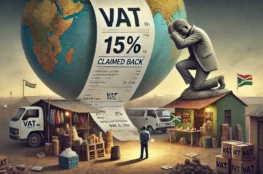There’s an old saying, “The early bird catches the worm.” When it comes to retirement planning, starting early isn’t just about catching the worm; it’s about ensuring a comfortable nest. If you’re reading this, it’s likely you have a foresight many don’t.
Compound Interest: Your Silent Partner
One of the main advantages you gain by starting your retirement planning early is the power of compound interest. By consistently investing a portion of your income, not only do you accumulate the principal amount, but the interest on your savings also starts earning interest. Over time, this can lead to exponential growth, meaning the sooner you start, the more you stand to gain. It’s like planting a tree today and watching it provide shade and fruits years down the line.
Flexibility to Take Calculated Risks
With more years ahead of you until retirement, you have the flexibility to invest in slightly riskier assets that might have higher returns. Historically, assets like stocks have shown to offer better long-term returns than conservative assets like bonds. By starting early, you can ride out the market’s ups and downs better than someone who’s starting their retirement planning later in life.
Less Pressure, More Freedom
The earlier you start, the less you may need to set aside each month to reach your retirement goals. This not only puts less strain on your monthly budget but allows for financial freedom in other areas of life. Thinking of taking that world trip? Or maybe enrolling in a course? With an early start to retirement planning, these dreams become more attainable.
Adapting to the Changing World of Work
Let’s face it; the job landscape is rapidly evolving. With the rise of automation, gig economy, and unconventional career paths, job security isn’t what it used to be. By proactively planning for retirement, you’re cushioning yourself against unforeseen job market fluctuations and setting the stage for a stable future.
Future Medical Costs – A Reality Check
With advancements in medical science, people are living longer. While this is certainly good news, it also implies a possible increase in medical expenses as you age. Early retirement planning ensures you’re financially prepared to handle these expenses, allowing you to enjoy a healthy and carefree retired life.
World of Retirement Planning
The Wholistic Picture of Retirement
While many view retirement planning as a mere money game, there’s a kaleidoscope of elements that weave into this intricate tapestry. Certainly, there’s the financial aspect: ensuring you have the funds to maintain, or even better, elevate your lifestyle once the regular paychecks cease. But beyond the bank statements, retirement planning encompasses decisions like choosing where your morning coffee will be sipped – a penthouse, a beach house, or a cottage in the countryside? – and charting out how to spend the newfound abundance of time.
The Evolution of Retirement Preparations
Your journey towards retirement is ever-changing, much like the chapters of a gripping novel. In the spirited youth of your career, it’s about setting those foundational bricks – saving a chunk of your income for a future that seems light-years away. As you saunter through the midlife corridors, your goals mature. Now, you’re not just saving; you’re targeting. You want your investments to hit specific figures. And, in the autumn of your career, as retirement becomes a visible horizon, the game pivots. You transition from accumulation to distribution, awaiting the fruits of your lifelong financial discipline.
Location Matters
Just as wines have terroirs, retirement plans have geographical contexts. While the core principles remain consistent, nuances exist. For instance, readers in South Africa might be familiar with the Retirement Annuity Fund, whereas those in North America might resonate more with the 401(k) system. But, wherever you are, the essence remains the same: harnessing the best tools at your disposal to sculpt a comfortable post-work life.
Your ‘Comfortable’ Number
The quest to decipher the magic number for retirement can sometimes feel like hunting for a needle in a haystack. Some experts toss around the golden figure of $1 million. Others swear by the 80% rule, suggesting that if you’ve led a life on a $100,000 annual salary, you’d need a retirement stash that can churn out $80,000 a year for about two decades. But these are not universal truths. The number is deeply personal and variegated, moulded by your aspirations, obligations, and risk appetite.
Your Retirement Ledger
While your retirement kitty is crucial, so is the list of outflows it will cater to. And it’s not just the obvious ones like housing or health insurance. It’s the impromptu road trips, the jazz concerts, or the pottery classes you’ve always yearned to enroll in. The more granular your foresight, the fewer the surprises.
Crafting Your Masterplan
Every masterpiece starts with a blueprint. Your retirement is no different. Chart out a plan, with milestones, timelines, and contingencies. Automate savings – technology can be a marvelous ally, ensuring consistency. Align with the right investment vehicles; if your workplace offers matching contributions, seize it. It’s like turning down a slice of cheesecake otherwise. And while the ride is mostly autopilot, occasionally grab the wheel. Periodic assessments ensure your journey is on track, especially when life throws those delightful (or sometimes not-so-delightful) curveballs.
The Gig Economy and Retirement
The rise of the gig economy brings a wealth of freedom and flexibility, but it also paints a blurry picture for retirement. Unlike traditional jobs offering retirement benefits, freelancers and independent contractors need to be their own pension champions. Without structured employer contributions, how can this new workforce cultivate a robust retirement plan? The answer lies in discipline, knowledge, and leveraging the myriad financial tools available. Crafting a retirement strategy in the gig world might require extra legwork, but the independence it affords can be well worth the toil.
Investing in Startups
It’s the age of startups. Everyday conversations brim with tales of unicorns, acquisitions, and IPOs. Can investing in startups be a viable component of your retirement plan? While the lure of exponential returns is tantalizing, startups are high-risk, high-reward. Diversifying your portfolio to include a sprinkle of these potential goldmines can be strategic, but it’s essential to temper enthusiasm with due diligence. Remember, for every unicorn, there are countless startups that never make it past the starting line.
Environmental, Social, and Governance (ESG) Investments
The financial realm is experiencing an ESG revolution, with more investors leaning towards ethical and sustainable choices. But can your moral compass also guide you to a comfortable retirement? The intersection of profitability and responsibility is debatable. While ESG investments showcase promising growth and resilience, it’s pivotal to dissect their long-term viability. As the global conscience tilts towards sustainability, aligning retirement funds with ESG might not just be ethical but also astute.
Retiring Abroad: Dream or Debacle?
Sun-kissed beaches, quaint countryside, or bustling foreign cities – the allure of retiring abroad can be irresistible. With potential lower living costs and a fresh cultural tapestry, it sounds like a dream. But is it? Beyond the glossy brochures lie real challenges: navigating healthcare, grappling with language barriers, and enduring homesickness. It’s a topic that stirs lively debates. While retiring abroad can be a golden chapter for some, for others, it can be riddled with unforeseen challenges.
We’d love to engage with you further on these and other facets of beginning your retirement preparations. Simply follow our contact form for a deeper exploration of this crucial life phase.




